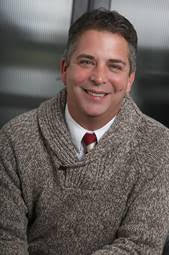Joe Coffey will earn his Master’s in Education (M.Ed.) from UNC-Wilmington next spring, and because of the Teacher Education and Compensation Helps (T.E.A.C.H.) Early Childhood® Scholarship program, he will do so debt-free. T.E.A.C.H. provides educational scholarships to early care professionals and those who perform specialized functions in the early care system.
Joe has had the desire to teach and engage families and children for 18 years serving as a preschool teacher, kindergarten teacher, public school administrator and training and technical assistance specialist. Now, while he pursues his M.Ed., he is the Child Care Resource & Referral (CCR&R) Program Director for Onslow County Partnership for Children in North Carolina.
“I am a true believer in lifelong learning. I also feel it is our responsibility to model life-long learning for those that we serve,” Joe said. “I originally became familiar with the T.E.A.C.H. program when I was completing my associate’s degree. Fellow students shared the information with me.”
What is T.E.A.C.H.?

In 1990, Child Care Services Association (CCSA) created the T.E.A.C.H. Early Childhood® Scholarship program to address the issues of under-education, poor compensation and high turnover in the early childhood workforce. In 2000, the T.E.A.C.H. Early Childhood® National Center was established in response to the growth and expansion of the T.E.A.C.H. Early Childhood® Scholarship. The T.E.A.C.H. Early Childhood® National Center is now offered in 22 states plus D.C. and has awarded over 150,000 scholarships since its opening.
T.E.A.C.H. is an umbrella for a variety of scholarship programs for those working in early education in North Carolina. Because of the complexities of the different scholarships, each recipient is assigned a specific scholarship counselor.
T.E.A.C.H. Scholarship Counselors

Kimberly Bynum, who has been with CCSA for 22 years, is the program manager for T.E.A.C.H. North Carolina. One of her main duties is to provide counseling to graduate-level scholarship recipients like Joe. Those counselors are the reason Joe can say, “The process has been easy to use and to understand.”
“Joe is a great recipient to work with,” Kimberly said. “There’s not a lot of hand holding to do with him. He’s really proactive, but if there is ever anything missing, like when we do check-ins with our recipients several times throughout the semester, he’s very responsive to getting me what I need.”
Counselors play a vital role for T.E.A.C.H. scholarship recipients, helping them navigate through the many obstacles they may face while furthering their education.
“I do the same thing for Joe as I do for all my recipients. I make sure if they’re enrolled in school, we have the documents we need to go ahead and pay for their tuition upfront, because we don’t want anybody dropped…I usually go through and look at all my recipients, including Joe, to make sure we sent in the authorization to the colleges and universities,” said Kimberly.
And because of T.E.A.C.H., Joe will be able to graduate with his M.Ed. debt-free.
“T.E.A.C.H. has made it possible for me to continually build on my education from an Associate’s in Applied Science to a Master’s in Education without incurring a huge amount of student debt,” said Joe. “Early childhood education is a field in which the professionals are often underpaid and are themselves lacking resources. T.E.A.C.H. provides an avenue to advance education and careers while helping to avoid massive student debt.”
Kimberly finds her part in that process gratifying.
“What I really enjoy most about my position is…developing that one-on-one relationship [with the recipients],” she said. “It really just brings it all together when you’re at a conference or…attending graduations and you get to meet that person face-to-face…Especially at graduation, it makes you feel really proud, because you work with these people for so long, so they made it and they’re done.”
The Economic Impact of T.E.A.C.H.
Kimberly is also proud that T.E.A.C.H. has a wide reach that goes well beyond the scholarship recipient after graduation.
“We are empowering these scholarship recipients to [earn] more education, which in turn, they bring back into their facility, they’re better equipped to teach the children and then the children are ready for school when they start kindergarten.”
Once recipients complete their degree, they increase their marketability in the early childhood education system and may experience growth in their wages as well. In 2018, associate degree scholarship program recipients experienced an 11% increase in their earnings, with a low turnover rate of 8%.
“In addition, it’s increasing the star rating level as far as education goes for those facilities they’re employed in, making them more attractive to families, so increasing business that way,” Kimberly said. “Also, what [T.E.A.C.H.] does in the community…is increase the student enrollment in early childhood education departments [at participating universities and colleges]. So by T.E.A.C.H. sponsoring students at these universities and colleges, there is a positive economic impact on the North Carolina college system.”
To continue supporting the operations of Child Care Services Association and crucial programs such as T.E.A.C.H. Early Childhood®️ Scholarship North Carolina, please consider donating today.




